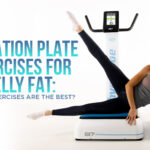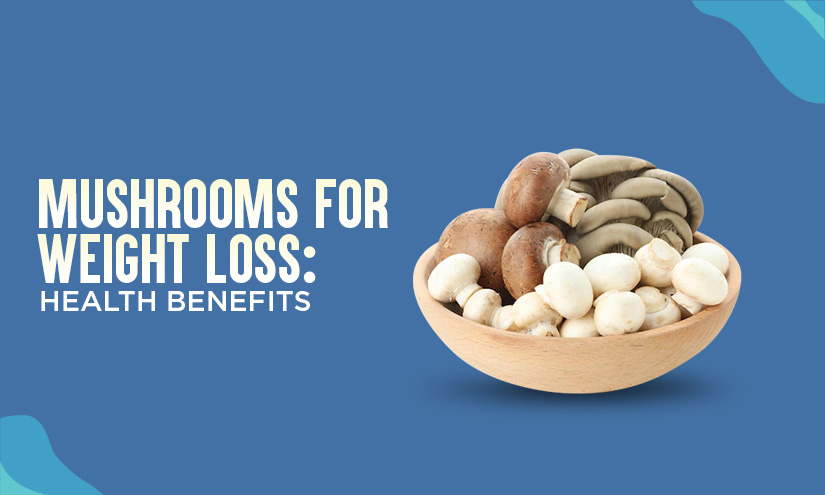5 Ways on How to Break a Weight Loss Plateau
It takes a lot of effort to lose weight. It takes dedication to decrease calories, regulate portion sizes, and make time for exercise. You may find yourself looking for encouragement in the lowering numbers on your scale, measuring tape, or clothing tag to get the job done day after day, week after week.
When those statistics stagnate, it can be infuriating, gut-wrenching, and completely demotivating, leaving you wondering how to break a weight loss plateau.
“When I ask someone why they think they’ve gained weight or stopped losing weight, they frequently cite exercise — either that they’re not active enough or that they can’t find time for it,” says Dr. Nabil Tariq, weight loss surgeon at Houston Methodist. “Exercise is, of course, a vital part of how to break a weight loss plateau . However, in most situations, it is not the primary cause of reaching a weight reduction plateau.”
How do I get past a weight loss plateau?
-
-
Keep Track of Everything You Eat
It may appear that you are not eating much, but you are still having problems losing weight. Overall, researchers have discovered that people tend to underestimate the amount of food they consume.
Obese persons reported consuming roughly 1,200 calories per day in one research. A comprehensive investigation of their consumption over a 14-day period, however, revealed that they were ingesting roughly double that amount on average.
Tracking your calories and macronutrients – protein, fat, and carbs — can give you a good idea of how much you’re consuming. This will allow you to make changes to your diet as needed. Furthermore, evidence suggests that simply keeping track of your food intake may help you lose weight.
-
-
Protein is Essential
Increase your protein intake if your weight reduction has halted. First, protein increases metabolic rate more than fat or carbohydrates. This is related to the thermic effect of food (TEF), or the increase in metabolism caused by meal digestion. Protein digestion increases calorie burning by 20-30%, which is more than double that of fat or carbs.
In one study, healthy young women followed meals that had 30% or 15% protein on two different days. On the higher-protein day, their metabolic rate climbed twice as much after meals.
Second, protein promotes the synthesis of hormones that help lower hunger and make you feel full and pleased, such as PYY. Furthermore, maintaining a high protein intake can help prevent muscle mass loss and a decline in metabolic rate, both of which are common with weight loss.
-
-
Stress Control
Weight loss is frequently slowed by stress. It not only promotes comfort eating and triggers food cravings, but it also boosts cortisol production in your body. Cortisol is referred to as the “stress hormone.”
While it aids your body’s stress response, it can also boost belly fat storage. Furthermore, women appear to be more susceptible to this effect. As a result, producing too much cortisol can make losing weight difficult.
Although it may appear that you have little control over the stress in your life, studies have shown that learning to handle stress can aid in weight loss. A stress-management approach that includes muscular relaxation and deep breathing resulted in an average weight loss of 9.7 pounds in an eight-week study of 34 overweight and obese women (4.4 kg).
-
-
Avoid Consuming Alcohol
Alcohol could be undermining your weight loss goals. Despite the fact that one alcoholic drink (4 ounces of wine, 1.5 ounces of hard liquor, or 12 ounces of beer) contains only about 100 calories, it has no nutritional value. Furthermore, many people consume more than one drink at a time.
Another issue is that alcohol lowers inhibitions, which can lead to overeating or poor food choices. This may be particularly difficult for those attempting to overcome impulsive food-related behaviors.
One study of 283 adults who completed a behavioral weight loss program discovered that reducing alcohol intake resulted in less overeating and greater weight loss among those who were impulsive.
Furthermore, studies have shown that alcohol suppresses fat burning and may contribute to belly fat accumulation. If your weight loss has stalled, it may be best to avoid alcohol or consume it in moderation.
-
-
Reduce Your Carbohydrate Intake
Low-carb diets have been shown in studies to be particularly beneficial for weight loss. In fact, a major assessment of 13 trials with at least a year of follow-up discovered that persons who consumed 50 or fewer grams of carbs per day lost more weight than those who followed typical weight loss regimens.
When you feel hopelessly stalled, reducing your carb intake may help you get your weight going again. The subject of whether carbohydrate restriction results in a “metabolic edge” that helps your body to burn more calories is still being disputed among nutrition and obesity experts.
Some controlled studies have demonstrated that very low-carb diets enhance fat burning and stimulate other metabolic changes that help weight loss, whereas others have not. Very low-carb diets, on the other hand, have been demonstrated to lower appetite and enhance feelings of fullness more than other diets.
They also cause your body to create ketones, which have been shown to suppress appetite. This may cause you to eat less automatically, making it simpler to start losing weight again without feeling hungry or uncomfortable.
How long does it take to break a weight loss plateau?
Why do some people lose weight and never regain it? Set point changes aren’t impossible. And patience. When we gain weight, we might reset our set point to be higher. To succeed, we must work with our body. More evidence suggests that if we lose weight gently, our body will quit fighting us.
Your body needs time to acclimate to a new weight once you achieve your set-point plateau. After that, you’ll have a new set point and your body will respond like that’s the ‘new normal,’ so you can start losing weight again if you want or need to.
A plateau can last 8-12 weeks, however it varies by person. After that, weight loss is considerably easy. Weight loss isn’t a race. Life-changing weight loss usually takes 1-2 years, not 1-2 episodes like on diet shows. It takes years to gain weight, so it will take time to reduce it.
Will a weight loss plateau go away on its own?
If you’re certain that you’ve followed your plan religiously throughout this time and are still not seeing results, it’s a solid sign that you’ve reached a plateau. Unfortunately, a weight reduction plateau will not disappear on its own, therefore it’s time to change up your diet and/or exercise routine.
The main line is that you’re unlikely to “break through” a weight loss plateau if you don’t 1) identify what’s impeding your progress and 2) make the necessary modifications.
Why can’t I break my weight loss plateau?
When you lose weight, you lose muscle as well as fat. Muscle aids in maintaining the pace at which you burn calories (metabolism). As a result, as you lose weight, your metabolism slows, causing you to burn fewer calories than you did when you were heavier.
Even if you eat the same number of calories that helped you lose weight, your slower metabolism will slow your weight loss. You reach a plateau when the calories you burn match the calories you ingest.
To lose more weight, you must either increase your physical activity or reduce your calorie intake. Using the same strategy that worked initially may help you maintain your weight loss, but it will not lead to further weight loss. Luckily, there are plenty of ways on how to break a weight loss plateau.
Sources:
https://www.houstonmethodist.org/blog/articles/2020/nov/5-ways-to-break-a-weight-loss-plateau-that-are-actually-achievable/
https://www.healthline.com/nutrition/weight-loss-plateau#TOC_TITLE_HDR_11
https://www.secondnature.io/guides/mind/motivation/weight-loss-plateaus-explained











